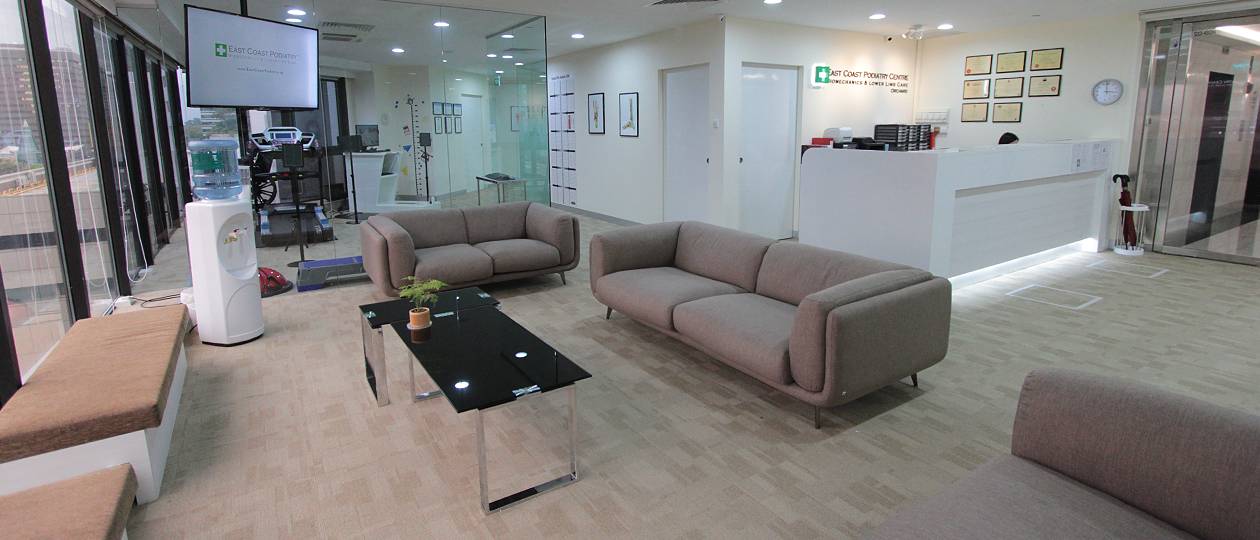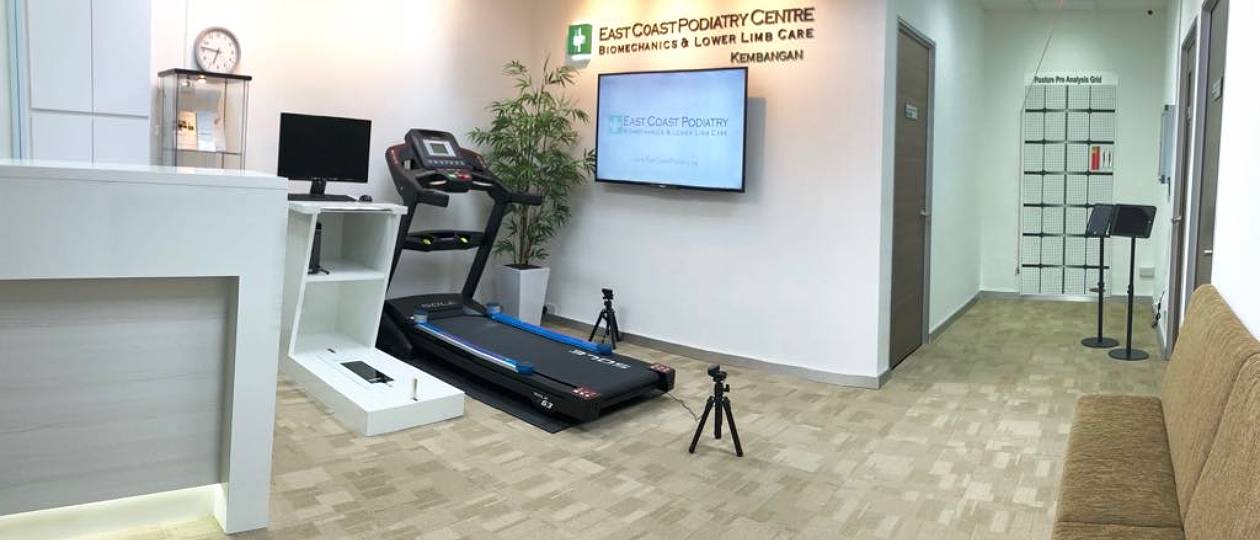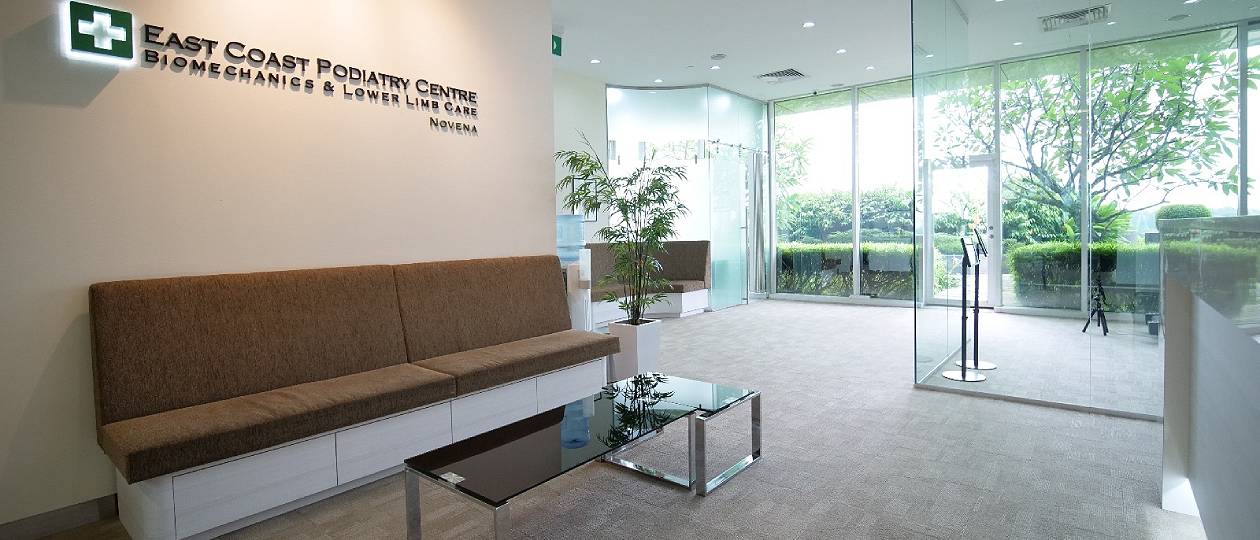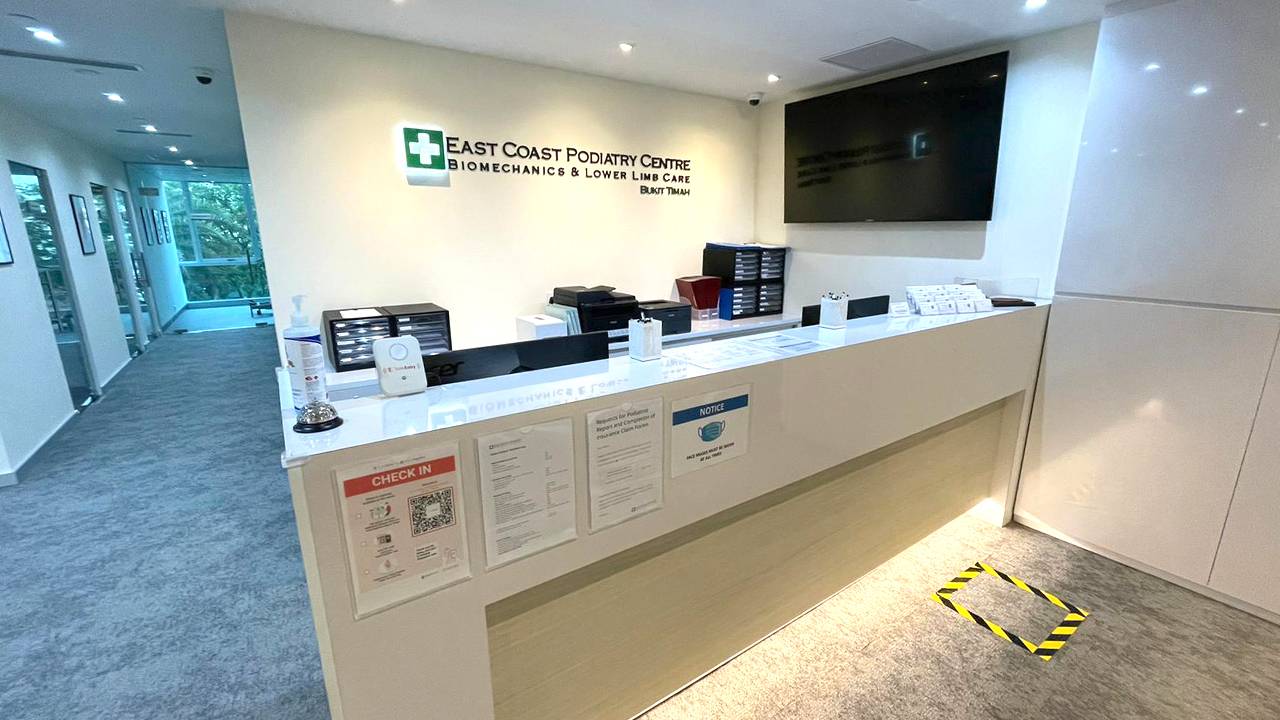Podiatrists That Specialise In Paediatric Musculoskeletal Conditions
Our podiatrists specialise in managing a wide range of paediatric conditions, from mild gait pattern disorders to complex soft tissue injuries. Our team is also one of the only teams in Asia that specialises in managing babies’ feet with congenital deformities, such as clubfoot, bowlegs, and knock knees. We use the latest conservative podiatric solutions to manage paediatric musculoskeletal cases for the successful resolution of paediatric abnormalities.
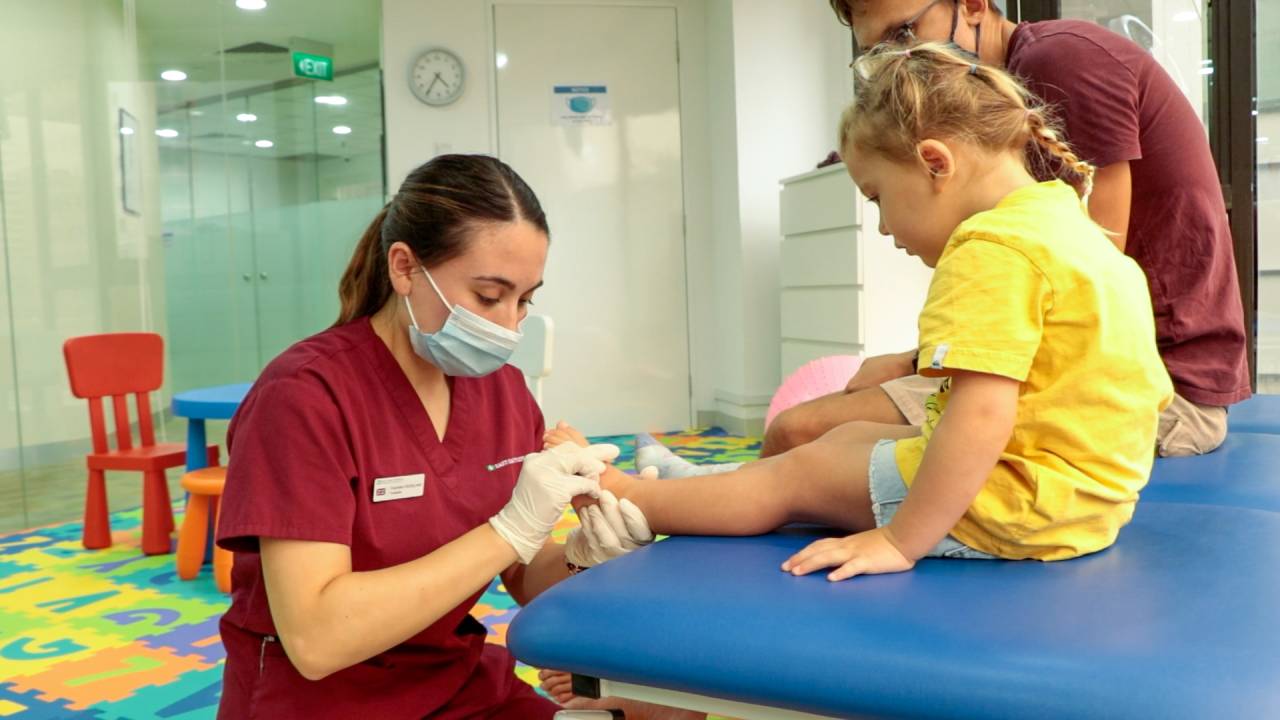
At What Age Should My Child’s Feet Be Assessed By A Podiatrist?
Paediatric podiatrists at East Coast Podiatry regularly see babies from as early as 6 days old. There is no correct age for when a child should be properly assessed by a podiatrist. However, if your child is experiencing discomfort or pain, or if you have noticed visible changes in your child’s lower limbs or gait, we recommend that you consult a paediatric podiatrist as soon as possible.
A child will not be able to verbalise their problems. Therefore, parents are encouraged to be proactive and vigilant about their child’s health as this can help prevent minor problems from developing into more serious issues.
Children of all ages can develop foot and walking conditions and deformities. While some of these conditions can resolve on their own over time, others may continue into adulthood and become a concern for life.
Here are some general guidelines outlining the recommended times to see a podiatrist for common lower limb paediatric conditions.
Congenital defects – within 2 weeks of birth
These may include clubfoot and vertical talus (which can sometimes be diagnosed before birth from routine ultrasound scans).
General foot and lower limb concerns – soon after you notice them
The age range for these general concerns can be anywhere from birth to the teenage years. Most parents seek help once their baby starts to walk and wear footwear, generally from 8 months onwards.
Infection of soft tissue – same day to within five days
Immediate attention is strongly recommended if the infection presents with a fever, rapid skin changes, or if the child is immunocompromised.
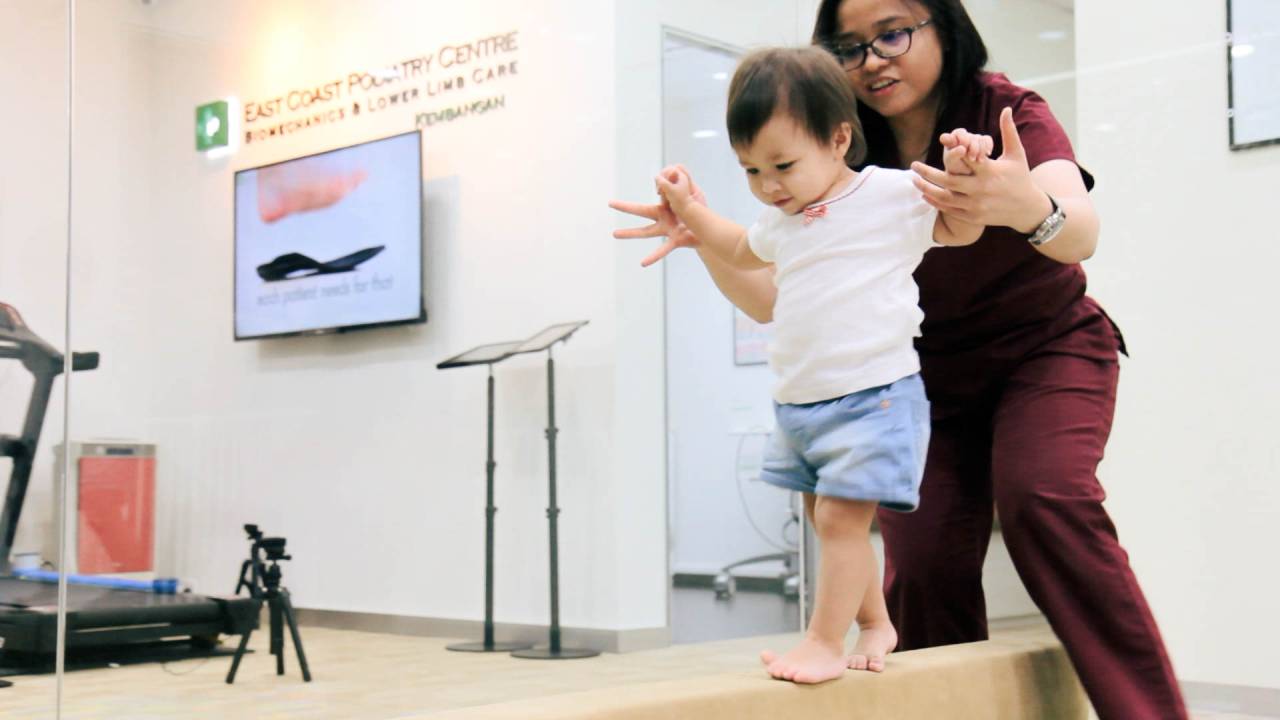
Why Are Paediatric Milestones Important?
Paediatric milestones serve as a general guideline to understanding the development of a child’s neurological, gross, and fine motor skills. Many parents may not be aware of what a particular milestone involves and it can be difficult to spot when something outside of the child’s normal development happens.
In general, children should reach the following gross motor milestones at around these ages:
- 3 months: Lifts head when lying prone (on their belly)
- 6 months: Rolls over
- 7-9 months: Sits up without support and stands with assistance
- 12 months: Stands and walks/cruises with assistance (holding on to furniture)
- 15 months: Walks without assistance
- 36 months: Adult-like walking
If you have noticed your child’s development deviating away from these milestones, consult a podiatrist promptly.
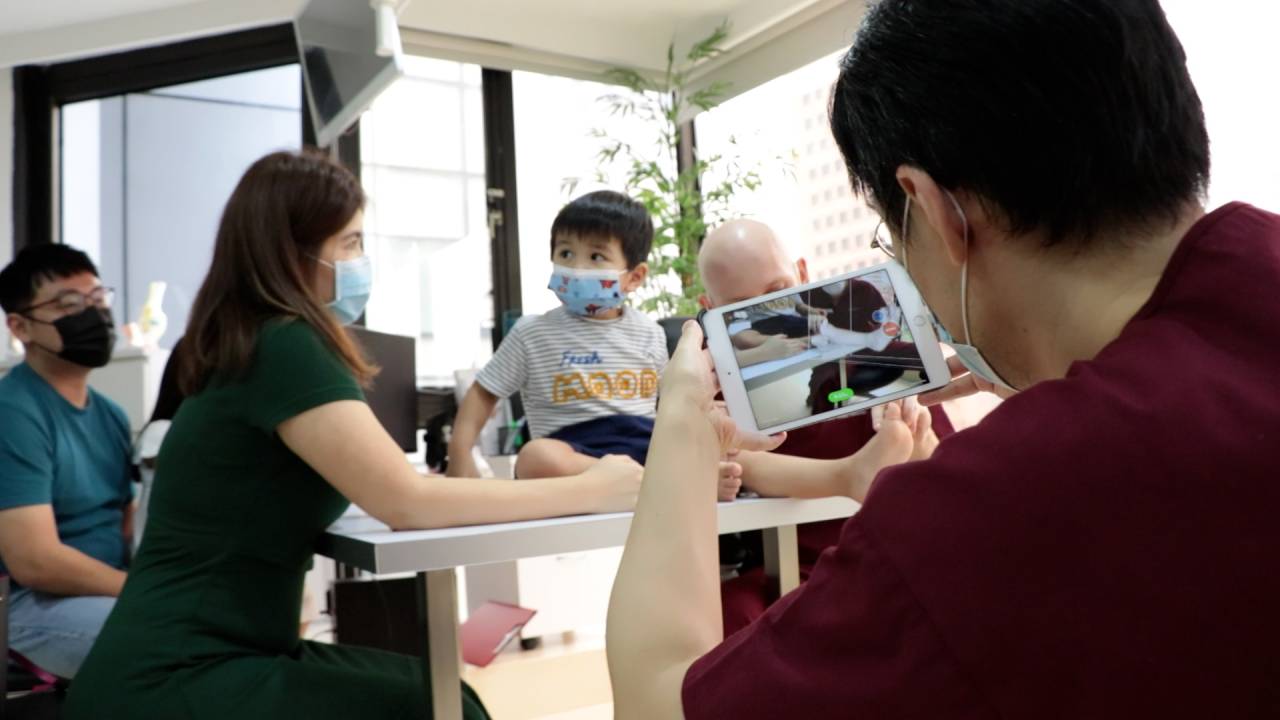
What Can East Coast Podiatry Do For Your Children?
At East Coast Podiatry, our podiatrists are well versed in early years to teenage musculoskeletal conditions. It is common for our podiatrists to assess your child’s biomechanics and musculoskeletal system through comfortable and non-invasive clinical tests to ensure an accurate diagnosis. The findings will then be communicated to you by your podiatrist, who will also advise you on short-term and long-term management solutions.
The recommended solutions will depend on your child’s condition, and can include:
- Serial Casting
- Paediatric Ankle Foot Orthotics (AFO)
- Custom Insoles
- Physical exercises and stretches
- Extracorporeal shockwave therapy (ESWT)
- Extracorporeal Magnetotransduction Therapy (EMTT)
- Super inductive system (SIS)
If your child requires a multi-disciplinary approach to their care, your podiatrist will promptly involve other healthcare professionals such as orthopaedic surgeons or paediatric neurologists. We will also be able to make prompt referrals for any child in cases of severe paediatric musculoskeletal conditions which require surgical intervention.

